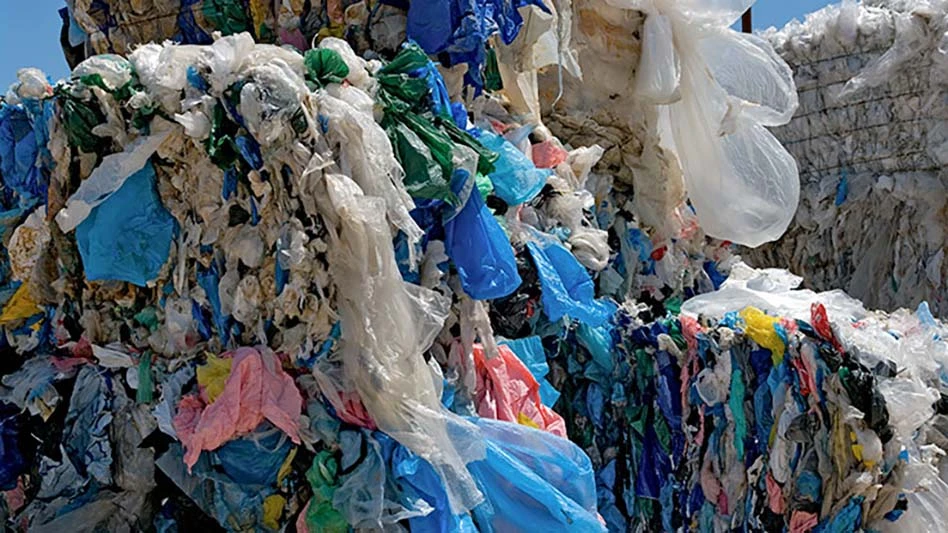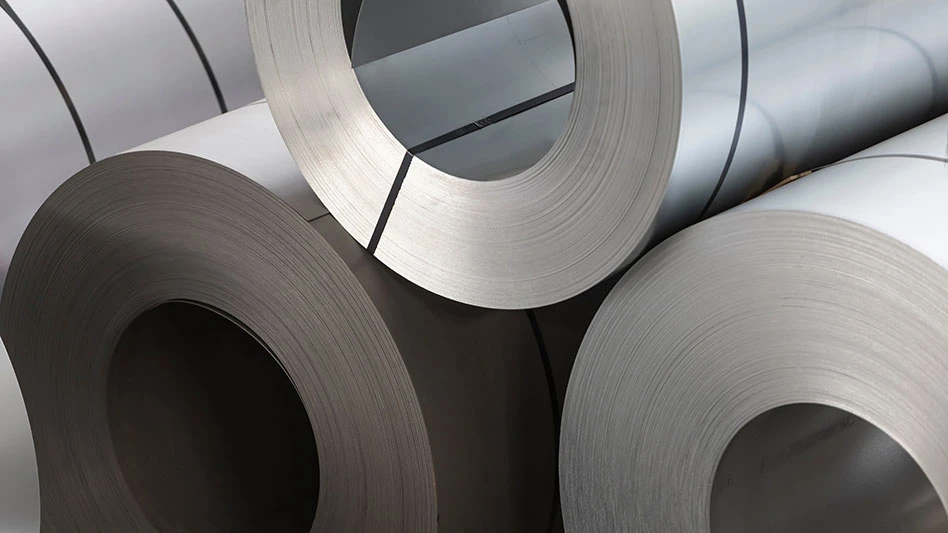
Photo by Brian Taylor
The 12th 2020 batch of imported scrap quotas issued by the Solid Waste & Chemicals Management Centre of the Ministry of Ecology and Environment of the People’s Republic of China will let in a relatively generous amount of material compared with some previous ones.
The 12th batch, announced Sept. 17, allows more than 730,000 metric tons of recovered fiber to enter through Chinese ports, plus more than 135,000 metric tons of red metal scrap, more than 120,000 metric tons of aluminum scrap and just 2,600 metric tons of ferrous scrap.
China’s economy is farther along a post-COVID-19 rebound curve compared with most other nations, and its government has targeted infrastructure spending as a major components of its economic stimulus efforts.
The second-half 2020 rebound, combined with the strict quota system for scrap in China, has put a strain on raw material supplies there. One symptom has been a boost in the importation of semifinished and finished metals in a nation that more often is considered an exporter of such materials.
The most recent batch of quotas with its higher numbers is similar to the ninth batch, issued in early July, which saw some 200,000 metric tons of aluminum scrap welcomed in as the nation prepared for its economic rebound. The 10th and 11th batches, however, together only letting in about 3,700 metric tons of aluminum scrap.
The nation’s government, led by its Ministry of Ecology and the Environment (MEE), has been attempting to lead China’s basic materials producers away from imported scrap. Plastic scrap has largely been banned, while recovered fiber will be severely restricted if not banned in 2021. Metals producers in China appear to have had some success in getting higher grades of scrap metal declared as “resources” allowed to be imported, although that system has not been finalized.
China’s seemingly protectionist stance toward imported scrap has been identified by the Washington-based Institute of Scrap Recycling Industries (ISRI) as a set of actions that are in violation of the country’s World Trade Organization (WTO) obligations.
Recycling firms outside of China are not the only ones concerned about the effects of China’s anti-scrap policies. Hong Kong-based Lee & Man Paper Manufacturing Ltd., which has several paper and board mills in China, indicates in notes accompanying a recent financial report that the restrictions are posing a challenge.
The firm states, “Mainland China has embarked on an import restriction policy for [scrap] paper starting from 2017. The relevant policy has restricted the supply of raw materials and has had some bearing on the domestic paper manufacturing industry.” Lee & Man says it “is actively seeking alternative methods for the import of [scrap] paper.”
As of late 2020, the firm is using the quota system while it can, having received permission to bring in more than 155,000 metric tons of recovered fiber in the 12th batch at mills in four different locations.
Fellow paper and board producer Nine Dragons Paper (Holdings) Ltd., also based in Hong Kong with mills throughout China, has 12th batch quotas adding up to more than 300,000 metric tons. In early 2020 notes accompanying its financial results, Nine Dragons said it had broadened its collection scope and entered into long-term cooperation agreements with “reputable recovered paper suppliers in mainland China so as to step up its efforts in procuring low-end domestic recovered paper” as a response to import restrictions.
The full list of scrap import quotas in the 12th batch has been posted, in Chinese, to the website of the Bureau of International Recycling on this webpage.
Latest from Recycling Today
- Avis introduces Harris American Co.
- International Paper in talks to divest five European box plants
- Recycled PP from Polykemi, Rondo Plast used in flood protection product
- Maritime on the mend
- Unifi launches Repreve with Ciclo technology
- Fenix Parts acquires Assured Auto Parts
- PTR appoints new VP of independent hauler sales
- Updated: Grede to close Alabama foundry





